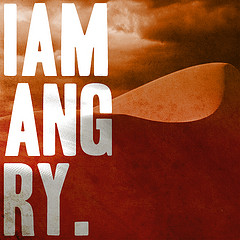I’m going to have another rant today. Over the last few years, I’ve been surrounded by genuinely talented freelancers who perform phenomenal work. As is often the case, professionals and small businesses subcontract these freelancers to perform work for their clients. Subcontracting freelancers allows the professional to provide a more comprehensive solution to their clients than they could otherwise perform on their own.
Given the direct benefit to hiring managers, why do they so often seem to feel they don’t have to pay their freelancers until after they’ve been paid themselves?
Really? Seriously?
Let’s say you need supplies from an art store to be able to perform work for your client. You wouldn’t say on your way out the door with an armful of paintbrushes, “I’ll pay you once I get reimbursed”. You wouldn’t be let out the door! Why then, if you hire a graphic artist to be able to perform work for your client, is it somehow acceptable to take that position? Let’s be clear: your liability to your vendor is not linked to your client’s liability to you.
As a project manager I have fielded many complaints in this area over the years, and am surprised at the frequency with which I observe this behaviour. I see it in banking, visual arts, and programming. This behaviour is everywhere. Whenever I receive this kind of complaint, I have to get involved in order to keep work flowing smoothly. I hate having to get involved in this type of issue, because unless there’s a quality problem, it’s so completely unnecessary.
Because this seems to be such a common problem, I’m going to assume hiring managers just don’t realize this is a problem. So if you plan to hire freelancers, here are some points to take away:
1) Use your line of credit to pay what you owe. It should cover you while your invoice to your client is in accounts receivable.
2) If you need the freelancer to do work for you, but can’t afford to pay them until after you’ve been paid yourself, make sure your freelancer understands this before you begin the engagement.
3) If your freelancer includes payment terms on his or her invoice, honour them. Net 30 actually means something.
4) Remember that freelancers are not large organizations. Freelancers are individuals who rely on that payment you’re sitting on, to eat.
5) Remember that without your freelancers, you wouldn’t be able to offer their work as part of your solution to your client. You need them way more than they need you. So please show them proper respect.
“But Geoff,” you say, “it’s not my problem if my freelancer can’t afford to eat.” You’d be correct. But neither is your relationship with your own client your freelancer’s problem.
“But Geoff,” you say, “I gave them a purchase order”. And I’d say that was fine, as long as you made those arrangements before work started.
“But Geoff,” you say, “I totally have another good reason”. Here’s the thing. Work is about relationships. If you allow the relationship with your freelancer to sour because you imposed inappropriate conditions on paying them after they finished their work, they may not want to work with you again. If your project needs touch-ups or rework, you may have to find someone else (who might not be as good).
And what an unnecessary waste that would be!
So pay your damn subcontractors.
Related articles
- What You Should Say to Your Client When Their Payment is Delinquent (freelancefolder.com)
- Creating an Agency: Getting Freelancers to Work with You (freelanceswitch.com)
- New eBook Helps Freelancers Find Solid Clients (prweb.com)
- The Skills Necessary to Administer a Freelance Business (freelanceswitch.com)
- My Freelancing Rules of Engagement. (xemion.com)
- Issues with Subcontracting, and more (soloprpro.com)


